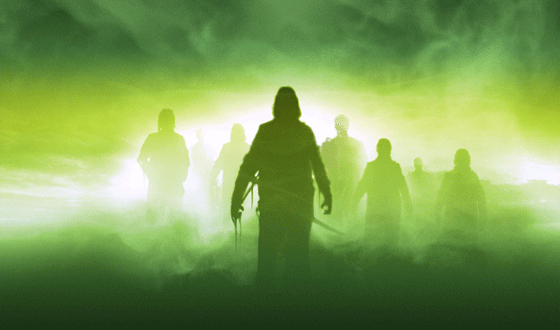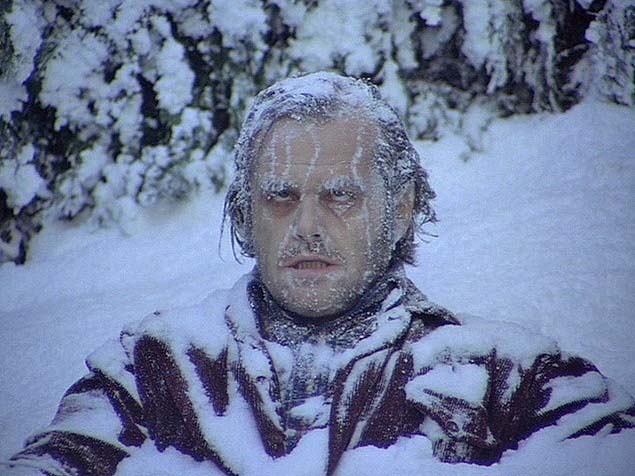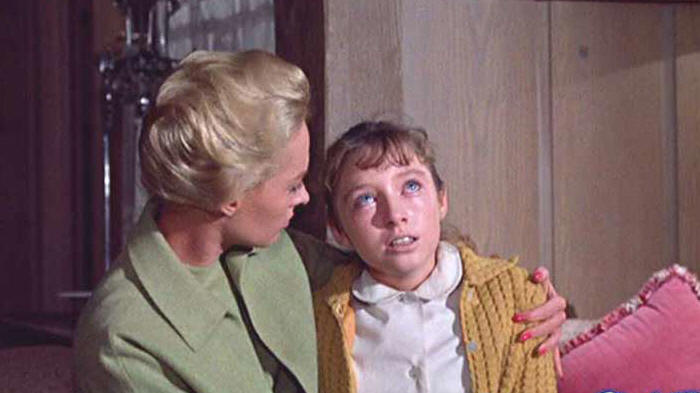They can also be very, very camp, which is what they are famous for I suppose, but generally not in a modern nudge-nudge-wink-wink look-how-silly-we're-being kind of way. These films, at the very least, and for all their faults, present their stories straight and straight-faced - there's no narrative flashbacks as such, few dream sequences (although there's a good one in The Plague of The Zombies). This can actually be quite refreshing, and bizarrely makes the films quite a bit less predictable. They are also very British.
The simple reason these come across sometimes jarringly to a modern audience is that they belong to a genre that doesn't really exist any more.
Also, while I aim to provide a (semi-objective) overview, it is apparent by now that I have a huge affection for these films, in all their (sometimes debatable) glory.
-----------------
The Ultimate Guide to The Ultimate Hammer Collection!
Film #6: The Reptile
Summary and Review: I made the mistake of watching this one too soon afer The Plague Of The Zombies. It reuses a lot ofthe sets having been filmed back to back and undoubtedly the former is a much better film (or at least a scarier one). The plot revolves around an evil monster knocking off the locals which may have something to do with a sinister local Doctor, his Malay servant and his reclusive daughter (hint: it does). It also looks like it was shot through a yellow filter for some reason. A bit average, to be honest, but it has its creepy moments.
Best Moment: The first appearance (well, second) of The Reptile.
Hammer Glamour: Jennifer Daniel, looking a bit too much like Eleanor from The Haunting. Plus I had to google her as I couldn't remember, so not memorable.
Unintentionally Funny Moment: The friendly publican's easy acceptance of going grave robbing. I was reminded of Bender in Futurama - "I'll get my kit!"
Bonus cameo: John Laurie, best known as Private Frazer (We're all DOOOOOMED) from Dad's Army rather wonderfully plays a character here called Mad Pete.
Film #7: The Witches
Summary and Review: Joan Fontaine gets menaced by a coven of witches in a small community that may or may not be in her head. Nice and understated for about 80% of its length, it goes absolutely batshit insane for the last ten minutes or so. Nothing to do with the Roald Dahl book or film, unfortunately, although reasonably good fun if not at all scary. Could have done with more of a sense of humour about itself.
Best Moment: A bit with a doll's disappearance and reappearance is suprisingly sinister.
Hammer Glamour: This was the last film role for Joan Fontaine and she looks great. Also she's apparently still alive!
Unintentionally Funny Moment: The appearance of the coven's leader "Behold! My magnificent headgear!"
Bonus cameo: Leonard Rossiter of Rising Damp plays a not-very-sympathetic doctor.
Film #8: One Million Years BC
Best Moment: The fight between a Triceratops and a T-Rex is in full glorious stop motion animation. Amazing.
Hammer Glamour: Iconic.
Unintentionally Funny Moment: "Akita!" is the word for freaking everything.
Bonus cameo: Robert Brown, the man who played M after Bernard Lee in Bond. Not that you'd be able to tell.
Film #9: The Viking Queen
Best Moment: The chariot racing looks fun. I want a go.
Hammer Glamour: I suspect Carita was hired for her 'other assets' rather than her acting ability.
Unintentionally Funny Moment: "This isn't what we dreamed, is it?" is supposed to be the big emotional pay-off at the end but it's freaking hilarious.
Bonus cameo: Patrick Troughton, just before he was in Doctor Who.
Film #10: Frankenstein Created Woman
Best Moment: "Bodies are easy to come by, souls are not..." Mwa ha ha
Hammer Glamour: Susan Denburg, although she's evil and a bit crazy.
Unintentionally Funny Moment: Frankenstein's response to being accused of witchcraft - although this was probably intentional.
Bonus cameo: Yes Minister's Derek Fowlds plays one of a trio of despicable cads. Nice.
-----------------
That's Part 2 done, folks, so stay tuned for Part 3!











